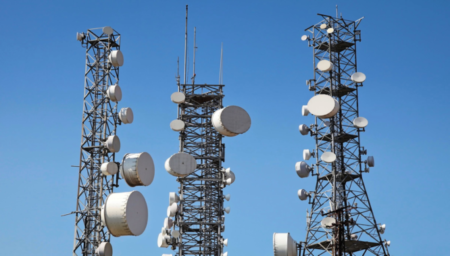Nigeria’s telecom sector, an important driver of the nation’s economy, is facing significant challenges that could have far-reaching implications for economic stability.
Recent reports indicate that the industry is grappling with regulatory hurdles, infrastructural deficits, and financial strains, all of which are contributing to a slowdown in growth. These issues are compounded by rising operational costs and a volatile exchange rate, which have impacted the profitability of major telecom operators.
One of the key concerns is the delay in the rollout of 5G technology, which is seen as essential for advancing Nigeria’s digital economy. The National Communications Commission (NCC) has faced criticism for its slow pace in auctioning 5G licenses, a move that industry experts argue is hindering the sector’s potential to drive innovation and economic diversification.
Additionally, telecom companies are struggling with inadequate infrastructure, particularly in rural areas where network coverage remains sparse. This gap in service provision not only limits the sector’s revenue potential but also exacerbates the digital divide, preventing millions of Nigerians from accessing vital online services.
Financial pressures are also mounting, with operators reporting increased costs for equipment and maintenance, driven by the depreciation of the Naira and global supply chain disruptions. These financial strains are threatening the sustainability of smaller operators and could lead to market consolidation, reducing competition and consumer choice.
The implications of these challenges are significant, as the telecom sector is a major contributor to Nigeria’s GDP and a vital enabler of other economic activities. The sector’s health is closely linked to the overall economic performance, affecting everything from banking to e-commerce.
Industry stakeholders are calling for urgent government intervention to address these issues. They advocate for streamlined regulatory processes, investment in infrastructure, and policies to stabilize the currency and manage operational costs. Without such measures, the sector’s troubles could ripple through the economy, undermining growth prospects and technological advancement.
As Nigeria navigates these challenges, the focus will be on balancing immediate sectoral needs with long-term strategic goals to ensure the telecom industry remains a pillar of economic strength and innovation.
